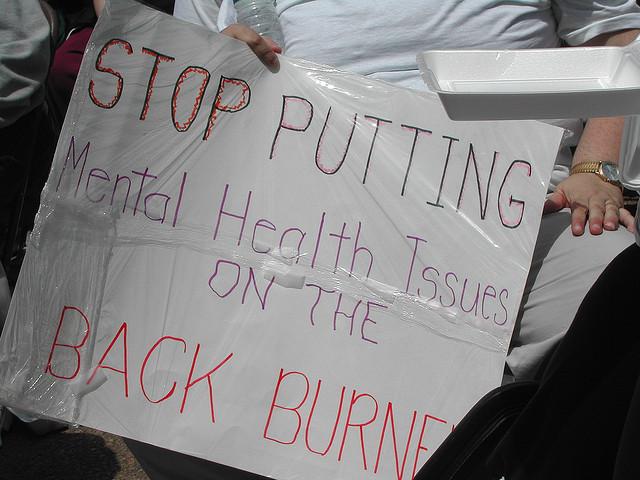There’s a certain unwritten set of guidelines and rules that accompany feelings and emotions for guys when we grow up. They all basically boil down to be being as a-emotional as possible.
This tacit idea, that somehow being emotional and showing emotions equates to being any less of a man, is preposterous and dangerous. So, by the time one reaches adulthood, it makes sense to not cry, exude any sort of emotion and appear as robotic behind the eyes as possible.
For some, suppressing emotions doesn’t affect them negatively, or manifest into larger problems. Yet, for others, this societal pressure to fit in, to appear sans-emotion is remarkably unhealthy, and can lead to severe difficulty to accomplish even the most rudimentary and every-day tasks.
An estimated one in eight guys are fighting some sort of mental illness, and some three quarters of all suicide victims are men, yet it’s something you’d never really see from the surface. Guys and mental illness are just something that isn’t talked about, but it is incredibly important we do.
When I was younger, I struggled to find my right fit in life. I dabbled with a lot of different things, never quite hitting my stride. This self-obsession with trying to fit in, and be considered cool, coupled itself with heightened anxiety.
I never felt comfortable talking about it, thinking that by having this disease that I was somehow inferior.
Luckily, as I aged, I found creative outlets, and had a healthy support network to help. Throughout the past few years I’ve grown more open talking about myself and what I struggled with. Yet, still to this day, I still find it incredibly difficult to discuss such matters with other guys I consider close friends.
Largely, society is to blame for such hesitance, and to blame for such a stigmatization of men and their health. By creating a place where it’s frowned upon, or even unmanly to show emotions, we are all complicit in the isolation felt by many. There’s nothing wrong with having, or talking about, mental illness. There is absolutely nothing to be ashamed about.
You wouldn’t feel shame in talking to your friends if you got the flu, nor would you if you broke your arm. It’s just the fact that open discussions on mental illness for men largely cease to exist, operating in some sort of hushed otherness, void of reason — this stigma pushes many away from getting the help that they need.
By breaking out of this void, we can push society forward, creating open communications for those dealing with their own struggles. Everyone is dealing with their own things, and I can guarantee that the majority of friends would offer to listen, and try to talk about anything someone is going through.
Similarly, UHS offers many resources if one needs any sort of professional help. Even if one doesn’t feel that they need it, talking to someone about the struggles of college life can be extraordinarily helpful.
There’s no point in pretending guys don’t have emotions. Continuing such a silly belief is futile, and can have dangerous consequences.
Adam Ramer (aramer2@wisc.edu) is a junior studying history and politics.


